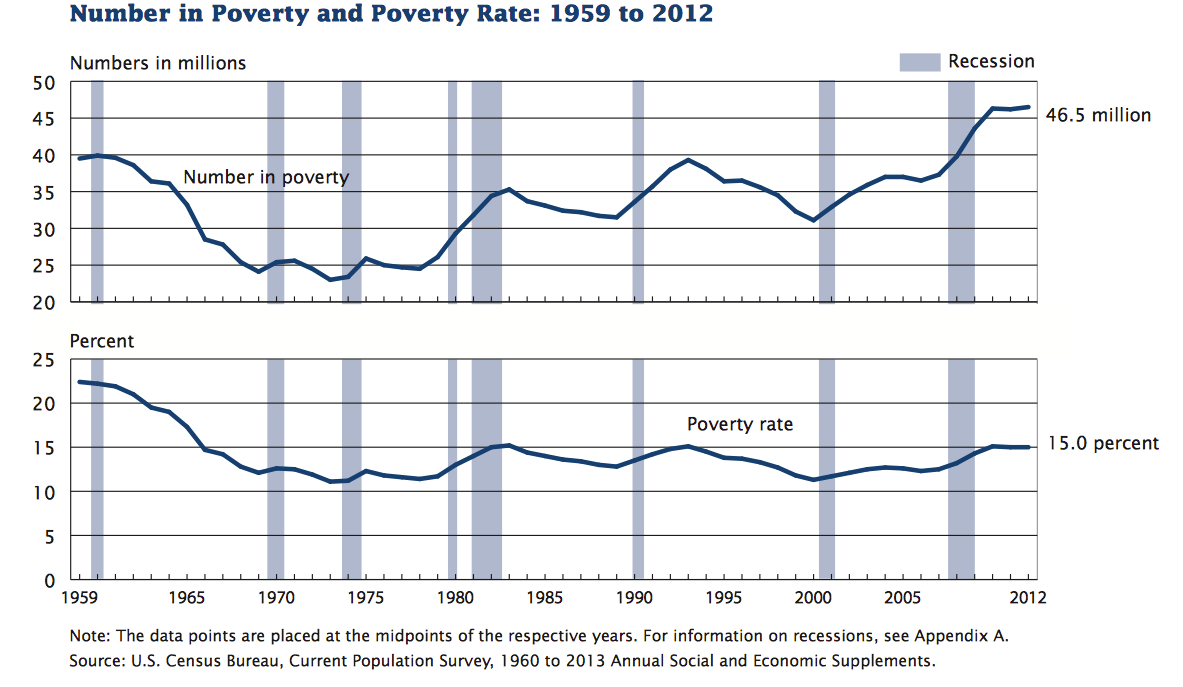On a day marking the 50th anniversary of Lyndon Johnson's declaration of a war on poverty, Archbishop Thomas G. Wenski of Miami, chairman of the U.S. bishops' Committee on Domestic Justice and Human Development, and Father Larry Snyder, president of Catholic Charities USA, in a letter today called on the U.S. Senate to advance policies that promote decent work and just wages. "We write to express our concern with the ongoing decent jobs crisis as well as the resulting inequality in our communities and country," Father Snyder and Archbishop Wenski said in a letter distributed among members of the Senate. "We urge you to consider closely any legislation that begins to heal our broken economy by promoting decent work and ensuring fair and just compensation for all workers."
Legislation to resume long-term unemployment insurance for 1.3 million Americans cut off at the end of 2013 cleared a key hurdle on Jan. 7 when 60 Senators, including six Republicans, voted to allow debate on the matter to proceed in the Senate. Getting such an extention through the House of Representatives may prove difficult. The issue of economic inequality and questions about the capacity of the market to respond adequately to the needs of the poor have become a hot topic for discussion around the country as the upcoming election season begins to heat up.
 Pope Francis's frequent commentary on issues of inequality and solidarity has advanced the discussion globally, and Washington has not proved immune to the Francis effect. A recent report in the New York Times noted: "Francis’ denunciation of an 'economy of exclusion' goes to the heart of the debate between the two parties over the role of government. Democrats like Mr. Durbin and President Obama—whose administration is facing off against Catholic nuns in the Supreme Court over birth control provisions in his health law—quote the pope in speeches, using his words to reinforce their positions. Republicans find themselves forced to justify votes to cut food stamps and unemployment benefits even as they try to counter the perception that they are indifferent to the poor."
Pope Francis's frequent commentary on issues of inequality and solidarity has advanced the discussion globally, and Washington has not proved immune to the Francis effect. A recent report in the New York Times noted: "Francis’ denunciation of an 'economy of exclusion' goes to the heart of the debate between the two parties over the role of government. Democrats like Mr. Durbin and President Obama—whose administration is facing off against Catholic nuns in the Supreme Court over birth control provisions in his health law—quote the pope in speeches, using his words to reinforce their positions. Republicans find themselves forced to justify votes to cut food stamps and unemployment benefits even as they try to counter the perception that they are indifferent to the poor."
In their letter to the Senate, "We write not as economists or labor market experts," Father Snyder and Archbishop Wenski said, "but rather as pastors and teachers who every day, in our ministries and churches, see the pain and struggles caused by an economy that simply does not produce enough jobs with just wages. So many of our families find it increasingly difficult to afford basic needs, forcing some to take multiple jobs or, in desperation, even seek out predatory loans."
Noting that "Human work has inherent dignity, and just wages honor that dignity," the two national Catholic leaders write that the current federal minimum wage fails “to provide sufficient resources for individuals to form and support families,” concluding in their letter that it does not meet the standard for just wages as set out in the Catechism of the Catholic Church.
They also point out that “a full-year, full-time worker making the minimum wage does not make enough money to raise a child free from poverty. Because the minimum wage is a static number and does not change, each year it becomes more difficult for workers making the minimum wage to survive. . . . Workers deserve a just wage that allows them to live in dignity, form and support families, and contribute to the common good.”
The letter cites Pope Francis's recent appeal to "remove centrality from the law of profit and gain and to put the person and the common good back at the center," the importance of work in in the "authentic promotion of the person," a task "incumbent on the society as a whole.”
Father Snyder and Archbishop Wenski conclude, "We must return the human person to the center of economic life; one way Congress can do that is by ensuring workers receive just wages."







